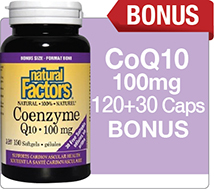- 1000 mg
- Taurine (Free-Form)
Gelatin (capsule) and Stearic Acid (vegetable source).
Format
 Capsules
Capsules
100 Caps
Dosage
As a dietary supplement, take 1 capsule one or more times daily as needed. Take with juice or water, preferably between meals. Consider taking this product in combination with NOW Magnesium Potassium Aspartate and B-6.
Important Information
Free of: sugar, salt, starch, yeast, wheat, gluten, corn, soy, milk, egg, shellfish or preservatives.
- Double Strength
- Nervous System Health
- Calms Mood
- Relaxing Effect
- Easy to swallow
Related Videos
No Related VideosArticles by a naturopathic doctor.
Since 1968 NOW has been a leader in the natural products industry. NOW Foods is an award-winning and highly respected manufacturer of vitamins, minerals, dietary supplements and natural foods. Now Foods brings you over 1600 Natural Foods, Supplements, Sports Nutrition and Personal Care Products. NOW supplements are high quality products at affordable prices.
Taurine is a conditionally essential amino acid which is not utilized in protein synthesis, but is mainly found free in most tissues, especially throughout the nervous system. Taurine has been found to be important in the formation of bile salts, cell membrane stabilization, and eye health. Taurine is well known for its role in the modulation of neurotransmitter activity and its relaxing effect on the mood.
Taurine is a called non-essential amino acid, because it is a component of protein that can be manufactured by the body from other amino acids. The exception to this is in newborn infants because they have not established the pathways needed to make this amino acid. For everyone else, just because taurine is non-essential does not mean that the body cannot benefit from its supplementation. Taurine plays an important role in the metabolism of proteins and neurotransmitters.
As a neurotransmitter taurine inhibits nerve impulses thus stopping unwanted nervous reactions like those that cause seizures, hyperactivity and anxiety. In the heart taurine regulates contractions and prevents irregular heartbeats. It also regulates potassium levels, which ensures regularity of the heartbeat. A deficiency of taurine leads to damage in the photoreceptors of the eye. Thus visual impairment can be caused by a lack of taurine.
Taurine is a part of the bile acids that are released into the intestine with fatty meals. Bile acids emulsify fat and aid in the absorption of fat-soluble vitamins. Natural health practitioners for heart disease, heart failure, high cholesterol, diabetes, hypoglycemia, epilepsy, anxiety, hyperactivity, high blood pressure and visual impairment recommend taurine.
The biologically active form of taurine is L-taurine. It is commonly found as a powder or in capsules. It may be found in formulas for heart health. It is used with coenzyme Q10 and carnitine for supporting the heart. Vegetarians tend to lack taurine because food sources are animal based. Take amino acid supplements at least 1/2 hour before or after a meal to maximize their absorption. If you take an individual amino acid supplement for longer than one month, add an amino acid complex to the protocol to prevent the deficiency of other amino acids.
What is the difference between L-Taurine and Taurine, or between L-Glycine and Glycine?
NOW only sells the natural forms of amino acids. These are typically the "L form", as in L-arginine, L-cysteine, etc. Synthetic forms are denoted as "D forms", such as D-Methionine and D-Carnitine. But there are 2 aminos that have only one form without these variations: Glycine and Taurine. These two aminos are sometimes called L-Taurine or L-Glycine, but are more properly called just "Taurine" and "Glycine". Regardless of the name used, they are always natural amino acids.
Technical explanation:
Most aminos have a property that, when the molecule is put into a solution, it will polarize and rotate light either to the left or right. The Greek words denoting left and right are Levo for left and Dextro for right, so the letters L and D are used to distinguish these forms. This polarization and rotation of light is called "optical rotation". The differing L and D forms are called stereoisomers. For amino acids that polarize light, the L form is the natural form.
However, Taurine is an amino acid that does not polarize light. It thus is properly called just "Taurine", without L or D configurations. While some label Taurine as "L-Taurine", that name is not technically correct. "Taurine" is the same exact molecule and form as what is commonly mislabeled as "L-Taurine".
There is another amino acid that lacks a potential optical rotation. Glycine is a very simple molecule that comes only as "Glycine", also lacking different L or D stereoisomer forms.
The D forms of amino acids sold commercially are considered to be synthetic. However, D forms of amino acids are not always synthetic. There are several D forms that exist in nature. In addition, amino acids can be racemized by the body and go back and forth between the D form and the L form quite easily. However, only L forms can be incorporated into proteins. For the purposes of dietary supplements, the L forms are natural and the D forms are synthetic. DLPA and DL-methionine are actually racemic mixtures of both L and D forms.
But there is no such thing as D-Taurine or D-Glycine; in other words, no synthetic forms exist of these two aminos since each only comes as one isomer that doesn't polarize and rotate light to the right. Nor are there really L forms of these, since they do not polarize and rotate light to the left, either. There are simply single, natural isomers of just plain Glycine and Taurine.
Don't assume that all D or L forms of molecules are good or bad, since it really depends on the individual substance concerned. For example, the D isomers of vitamin E are the natural forms and the L isomers are synthetic; just the opposite of amino acids. Thus the terminology and forms of what is natural or synthetic will vary by substance. Some natural molecules exist as L form, some as D form and some have only one form, whether in food or if synthesized.
- Reviews
- POST A NEW REVIEW





















